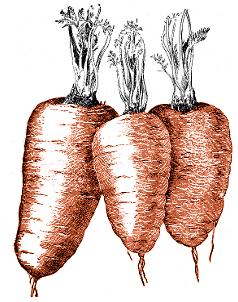Bare soil
This afternoon, I finished weeding the rosebay willowherb, until more shoots spring up at least. Weeded every shoot I could see, dug up every rhizome I could find, levelled out the soil and spread a layer of compost across the top.
The sowing plan for the bed starts with: peas at the back, against the trellis. Now, I’ve had issues with pea support in the past, and I suspected that the laths of the trellis are a bit big for a pea plant to wrap a tendril around, so the trellis has been covered in green plastic pea netting. It’s not the prettiest solution but it’s not too obtrusive; and I’m sure the vines of the back neighbour’s honeysuckle will love clinging onto it too.
In the front of the bed, we have scattered various seeds, mostly flowers, in the hope that the will grow up in front of the pea plants without eclipsing them entirely. We’ve scattered handfuls of:
- Cornflower, Centaurea cyanoides “Blue Diadem”
- Night scented stocks, Matthiola bicornis
- Corn marigold, Chrysanthemum segetum
- Poppy, Papaver rhoeas “Flanders”
- Swiss chard, Beta vulgaris vulgaris Cicla-Group “Five Colour Silverbeet”, because Gretchen has spotted it elsewhere and liked the different colours of the leaves.
- Tree spinach, Chenopodium giganticum “Magenta Spreen”, scattered from a packet I bought a couple of years ago and intended to sow but never did. The aim of the tree spinach is much as it was when I bought the packet: it has been sowed in the left-hand end of the bed, a dark and fairly damp corner where not much grows apart from dandelions. Tree spinach might prefer sun, but will hopefully cope with the shade there; and there won’t be any peas at that end that it might crowd out.
There are also nasturtiums, Tropaeolum majus “Empress of India”, apparently “a classic Victorian variety” according to the Internet, sowed in a couple of spots, their seeds like tiny miniature brains. The key to all of this, of course, is the idea that the peas are going to clamber up high enough and quick enough that none of the stuff around them will cause any problems. The other key, which you might have realised, is that nearly all of the ornamental (or semi-ornamental) stuff is self-seeding. Hopefully, once everything is set up, everything will keep on going year after year, or at least until we move house.
This is all very experimental and no doubt a Proper Gardener would tell us we were trying to cram far too many plants into a tiny space. However, we will wait and see. I won’t be surprised if not everything develops, or at least, doesn’t grow exactly how I originally envisaged things. It might need a bit of tweaking next year, or it might all come up again, irregular but satisfactory.
I’ve given up on the calendula seeds mentioned previously, and bought a new packet. Into pots, we sowed:
- More calendula, obviously.
- And more Tropaeolum majus.
- Mixed rocket leaves
- A different dwarf sunflower, Helianthus annuus “Choco Sun”, allegedly one of the smallest sunflower varieties available. Short enough for a toddler to sniff, I hope.
And with a general tidy-up, the garden is looking reasonable again. The back bed may be bare soil now, but hopefully within a month or two it will be full of greenery, and mostly the greenery we intended, too. In the tidy-up a lot of the wooden containers were thrown away, their wood rotted too far to save them, but that leaves us a good terracotta core. The plants we bought and potted up 2½ weeks ago are settling in nicely: the fennel looking lively, the thymes putting on new growth, and the marjoram already starting to fill up its pot. I’m rather pleased with how quickly things have been turned around. Even if things aren’t perfect yet, there’s not too much more tidying up left to do.

